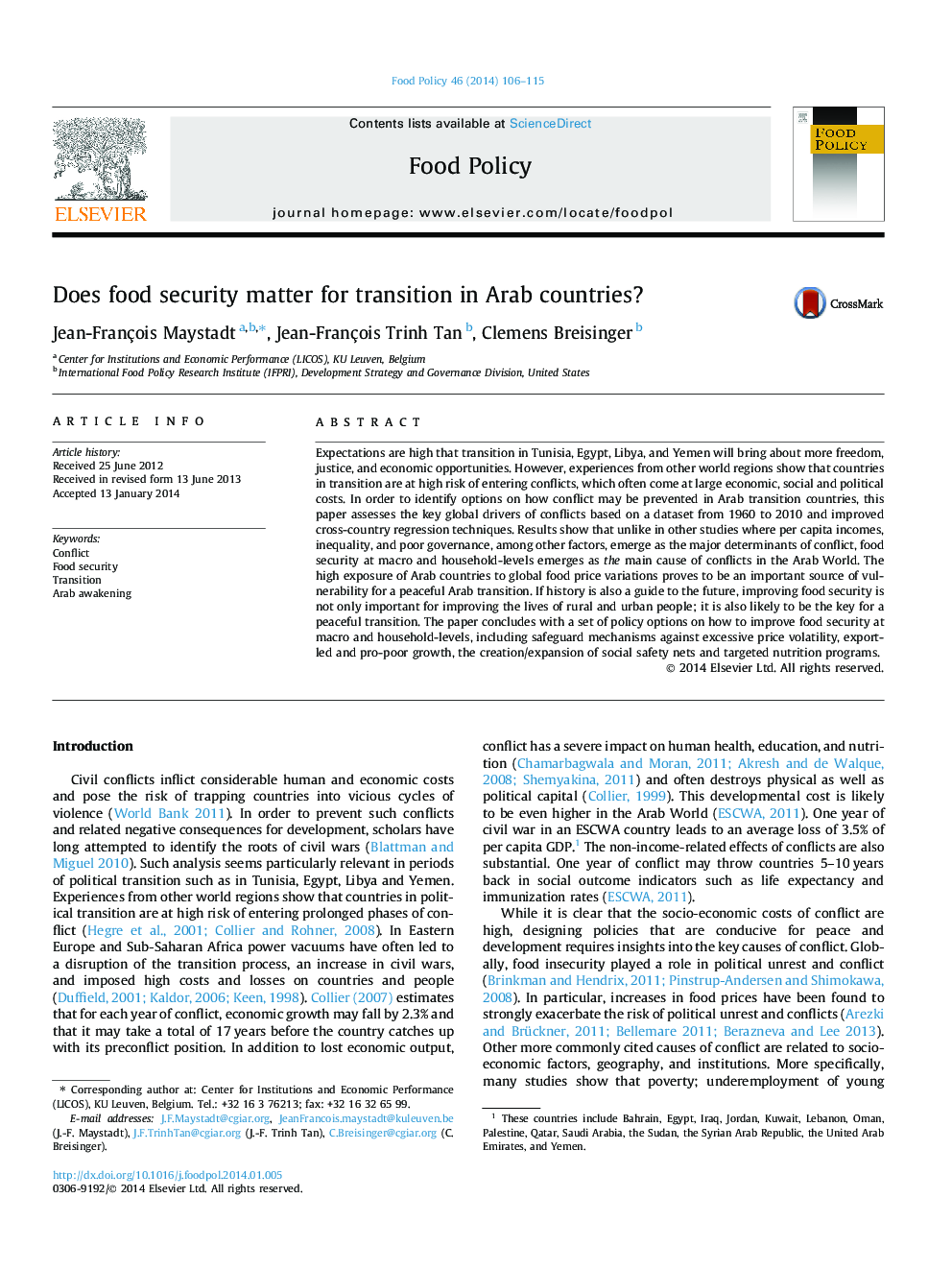| Article ID | Journal | Published Year | Pages | File Type |
|---|---|---|---|---|
| 5070518 | Food Policy | 2014 | 10 Pages |
Abstract
Expectations are high that transition in Tunisia, Egypt, Libya, and Yemen will bring about more freedom, justice, and economic opportunities. However, experiences from other world regions show that countries in transition are at high risk of entering conflicts, which often come at large economic, social and political costs. In order to identify options on how conflict may be prevented in Arab transition countries, this paper assesses the key global drivers of conflicts based on a dataset from 1960 to 2010 and improved cross-country regression techniques. Results show that unlike in other studies where per capita incomes, inequality, and poor governance, among other factors, emerge as the major determinants of conflict, food security at macro and household-levels emerges as the main cause of conflicts in the Arab World. The high exposure of Arab countries to global food price variations proves to be an important source of vulnerability for a peaceful Arab transition. If history is also a guide to the future, improving food security is not only important for improving the lives of rural and urban people; it is also likely to be the key for a peaceful transition. The paper concludes with a set of policy options on how to improve food security at macro and household-levels, including safeguard mechanisms against excessive price volatility, export-led and pro-poor growth, the creation/expansion of social safety nets and targeted nutrition programs.
Keywords
Related Topics
Life Sciences
Agricultural and Biological Sciences
Food Science
Authors
Jean-François Maystadt, Jean-François Trinh Tan, Clemens Breisinger,
